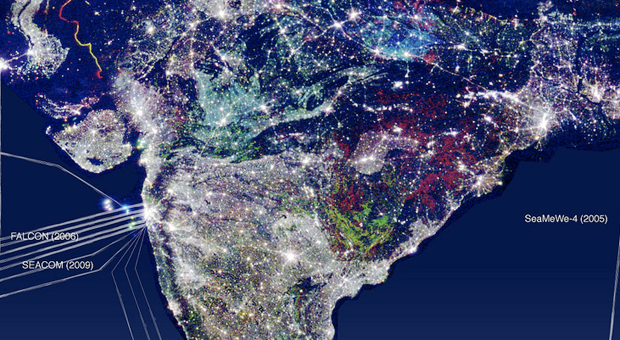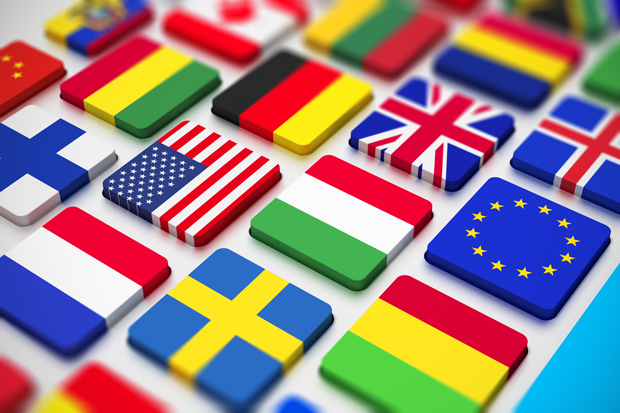Index relies entirely on the support of donors and readers to do its work.
Help us keep amplifying censored voices today.

Chinese fans of American TV have been dealt a serious blow after some of their favorite shows were removed from the country’s main video streaming websites. On Saturday, The Big Bang Theory, The Good Wife, NCIS and The Practice all disappeared from the sites of Sohu TV, iQiyi and Youku. Immediately after, fans took to online forums to voice their disapproval. Netizens lashed out at the government, referring to China as “West North Korea,” a phrase that was quickly blocked from online searches.
No one knows exactly why the government has ordered the shows offline. Others, such as House of Cards and Breaking Bad, both of which have gained huge followings in China and present darker material, remain unscathed. Speculating in the state-controlled newspaper Global Times, leading film critic Tan Fei argued that “the machetes the monitoring departments waved to the U.S. dramas are not only aimed at protecting teenagers’ physical and mental health but, on a deeper level, are aimed at protecting our weak domestic film industry.”
Of Fei’s last point, it’s worth noting that until recently, the main video providers have been free to broadcast shows without the hurdle of obtaining official approval. China’s TV stations, by contrast, are heavily restricted when it comes to content. Poorly acted soap operas and over-the-top dramas about corrupt emperors and the Sino-Japanese War are the mainstay of these channels. As a result, viewers have fled to the more free and entertaining realms of online TV.
In order to lure people back, state-owned television channels have started to broadcast some of the same shows as Chinese streaming platforms, albeit censored versions. China’s national TV broadcaster CCTV will soon air The Big Bang Theory and has recently introduced a dubbed version of Game of Thrones to its paid channel.
Li Bingwen, who has worked for Chinese state media and is now at a western publication, watches a range of popular US shows, including the ones that have been removed. For Li, who tells Index that Chinese TV shows make him “doze off”, the latest government move is “cynical.”
“Forcing video web sites like Youku.com to remove The Big Bang Theory from their play lists is the most cynical act by Chinese censors ever. Banning speech for ideological reasons is evil but understandable. Taking a show off the site of a private company just so a state-owned broadcaster can air it is the new height of hypocrisy.”
Commerce doesn’t explain the move entirely though. The development comes as the government is tightening control of all areas online, particular the areas that attract the most attention, which these shows do.
“There’s been a tendency for the government to treat different forms of communication differently when it comes to censorship, being most restrictive about the media that reach the broadest spectrum of people,” explained Jeffrey Wasserstrom, a prominent academic and author of China in the 21st Century: What Everyone Needs To Know.
“The internet was seen for a time as having less broad a reach than film and television, so you were given more latitude for what you said online as opposed to in a television show. Now, of course, streaming content and growing numbers of people who go online regularly blurs that distinction,” he added.
While people of all ages within China watch these shows, it is the youth who tune in the most, and are therefore the most affected. On top of making up the biggest proportion of online users, the under-30 demographic are particularly drawn to the themes of the shows, and disillusioned by those themes presented on Chinese TV. For example, the story of science geeks trying to find their way in the world post graduation, as is illustrated in The Big Bang Theory, resonates with millions of young Chinese. With the job market in China becoming fiercely competitive and living costs soaring across major cities, graduates are now finding their dreams scuppered, much like the characters of this show.
Today’s Chinese youth also see US and UK shows as windows to foreign cultures, and more importantly, as exercises in English. For many of these people then, who might be politically apathetic, or at least profess to be so, the recent attack will be a first direct taste of censorship.
“Moves like this, which limit access to works of western popular culture, are particularly significant for Chinese youth,” Wasserstrom said.
“When people in China go online, as when people in other places do this, they often do so in search not of news but of entertainment and other kinds of non-political things, such as information about restaurants. Being suddenly unable to access a favorite television show is both annoying and a reminder of the prevalence of the government’s ability to exert control over many different aspects of life, when it wants to.”
The battle is not over yet. In the wake of the ban, people have started exploring alternative methods to access the shows. Committed viewers like Li can still gain access to the programmes. Li is boycotting CCTV and says he will explore unsanctioned methods to access the shows.
“If you are really serious, you can find them, maybe on someone’s virtual hard drive that they make accessible to everyone. A friend for example goes to a place to download tons of shows shortly after they air in the US. He is very discreet about that place and he is helping me now.”
Less tech savvy fans will have to await the airing of The Big Bang Theory on Chinese TV and hope it’s not too sanitised. Wang Meimei, another fervent Big Bang fan who Index spoke to, says she’s not holding her breath. She’ll tune in anyway.
“I want to see how much they will ruin a good drama,” explains the 26-year-old curtly.
This article was published on May 2, 2014 at indexoncensorship.org

Striker Diego Costa during the first leg of Atlético Madrid’s Champions League semi-final against Chelsea (Image: Gonzalez Fuentes Oscar/Demotix)
Atlético Madrid are the toast of world football fans at the moment. They’re having possibly their greatest season ever, qualifying for the Champions’ League Final and looking set to break the Barcelona/Real Madrid duopoly over Spain’s La Liga.
Sports fans love nothing more than an underdog story, and the Atlético one feels just right. Always the less glamorous team in the Spanish capital, they’re finally having their time in the sun. Only a complete killjoy would rain on the parade of super striker Diego Costa and his team mates.
So here I go.
Atlético’s shirts bear the advertising slogan “Azerbaijan: Land of Fire”. They are sponsored by the government of Ilham Aliyev, a man who combines the callousness of the classic dictator with the appearance and language of an aspiring sales executive who’s read one too many management manuals. His Twitter page bears the fascinatingly banal phrase: “We turn initiatives into reality.” I have absolutely no idea what that means (suggestions in the comments, please). Whatever it does mean, he’s clearly quite pleased with it, as it pops up regularly on his website.
The deal (sorry, “strategic agreement”) with Atlético came about in December 2012, and was renewed in March 2014.
The explanatory blurb on the Atlético website is packed with more nonsense of the “initiatives into reality” variety.
Atlético is not a football club, it is a “sports entity”.
“The link between Azerbaijan and Atlético Madrid,” we are told, “is much more than a traditional commercial sponsorship associated with a shirt sponsorship, because it has atremendous value, as the tool to achieve important goals, through actions of a different nature, sports, commercial, communication, marketing and corporate social responsibility for the benefit of all parties.”
This is almost poetic in its nonsense; in fact the “actions of a different nature, sports, commercial, communication, marketing and corporate social responsibility for the benefit of all parties” brings to mind no less literary masterpiece than Lucky’s monologue in Samuel Beckett’s Waiting for Godot: “…the practice of sports such as tennis football running cycling swimming flying floating riding gliding conating camogie skating tennis of all kinds…”
All this would merely be amusing if Aliyev was, say, head of a fleet car dealership in Runcorn. Unfortunately, he’s not. He’s the autocratic head of a regime bloated on oil and gas revenue that is engaged in an enormous whitewashing exercise composed of equal parts propaganda and censorship.
The propaganda part can be quite amusing: the Knightsbride nightclub called Baku, after Azerbaijan’s capital; the glossy magazine, also called Baku; the shiny skyscrapers; the on-message Eurovision Song Contest entry (Start A Fire, sung by Dilara Kazimova).
The censorship bit is rather less fun, as a search on the Index on Censorship website will quickly reveal.
There is the case of journalist Khadija Islamova, harassed and blackmailed by the authorities; Index on Censorship award winning newspaper Azadliq, threatened with financial ruin deliberately brought about by state agencies; Idrak Abbasov, brutally assaulted for daring to report on demolitions of houses by the state oil company. There is also Rafiq Tagi, a murdered columnist whose killer has never been brought to justice; dissident “Donkey bloggers” Adnan Hajizade Emin Milli, imprisoned for hooliganism after going to the police to report that they had been assaulted; reporter Eynulla Fatullayev, jailed for four years, and hit with false drug charges; critical journalist Elmar Huseynov, murdered in 2005.
Are these victims of Atlético Madrid? No, it would be unfair to say that. For a start, Atlético are not the only club to benefit from shirt sponsorship from dubious regimes; Barcelona, with their smug “més que un club” image, ditched UNICEF from their jerseys to sign a deal with Qatar, a country that locks up poets, for God’s sake. No one blames Lionel Messi for the fate of Mohammed al-Ajami.
Nonetheless, Azerbaijan’s deal with Atlético is one side of Aliyev and his cronies’ colossal image management exercise; and the imprisonment of critical reporters, bloggers and activists is the other. They cannot be separated entirely.
We should enjoy the football and praise the players, but we owe it to brave determined Azerbaijainis to ask some tough questions of Atlético’s officials, even as they celebrate.
This article was posted on May 1, 2014 at indexoncensorship.org

India was among the few governments that did not sign the NETmundial outcome statement. But why does it seem that the world’s largest democracy is not putting its weight behind a “bottom-up, open, and participatory” multistakeholder process?
In his address to the NETmundial gathering, Vinay Kwatra, the official Indian representative said, “We recognize the important role that various stakeholders play in the cyber domain, and welcome involvement of all legitimate stakeholders in the deliberative and decision making process. Internet is used for transactions of core economic, civil and defence assets at national level and in the process, countries are placing their core national security interests in this medium. Now with such expansive coverage of States’ activities through the internet, the role of the governments in the Internet governance, of course in close collaboration and consultation with other stakeholders is an imperative.”
The message was clear. The internet has a large role to play in India’s national policy goals, and to that end, a global internet governance ecosystem has to be managed, at the international level, by multilateral mechanisms.
India has over 200 million Internet users — with about 52 million subscriptions — over 900 million mobile telephone subscribers. These numbers are only going to grow. Kwatra, continuing his address, added that, “On our part, however, we would have liked to some of important principles and ideas, highlighted by us and many other countries reflected in the draft outcome document… (we) look forward to constructively engaging with other delegations in collectively contribute to making the Internet open, dynamic and secure, and its governance balanced between rights and responsibilities of all its stakeholders.” (sic)
Kwatra was speaking, of course, at NETmundial, dubbed the “world cup of internet governance.” Held in Sao Paolo, Brazil, on April 23-24, 2014, the conference was announced by Brazil President Dilma Rousseff. The entire chain of events can be traced back to the revelations by Edward Snowden that the US’s National Security Agency had been spying on its own citizens and other countries alike, including the personal communication of President Rousseff. In a heated statement at the UN General Assembly in September 2013, she called for the UN to oversee a new global legal system to govern the internet. She said such multilateral mechanisms should guarantee the “freedom of expression, privacy of the individual and respect for human rights” and the “neutrality of the network, guided only by technical and ethical criteria, rendering it inadmissible to restrict it for political, commercial, religious or any other purposes.
Soon, after a brief consultation with Fadi Chehade in October 2013, the head of ICANN — Internet Corporation for Assigned Names and Numbers – an organization thatcoordinates the Internet’s global domain name system, the dates of NETmundial was announced. And to add expectation to the event, in March 2014, the the U.S. Commerce Department’s National Telecommunications and Information Administration (NTIA) announced its intent to transition key internet domain name functions to the global multistakeholder community. It clarified that it would not hand over ICANN to any government-led body. Suddenly, NETmundial gained weight as it was to be the next international forum where the future of internet governance was to be debated – and now one of the organizations government a part of the internet was in play. A far cry from what President Rousseff had suggested in the UN General Assembly, instead of talking about an international legal regime to govern cyberspace, the focus of the meeting turned to multistakeholderism as the way forward in the sphere of internet governance.
The draft outcome statement and the subsequent final outcome state released after the two-day conference is a result of 180 input documents and 1300 comments from over 47 countries, and the work of the 1229 delegates from 97 countries who attended NETmundial. India had an official delegation as well as civil society participants who attended the meeting. In fact, an Indian academic was chosen to co-chair the organizing committee for civil society for the event. Remote participations hubs were set up in cities around the country, including Gurgaon, Chennai and Bangalore. Within the Indian contingent too, as with any large country, there are divergent views on the governance framework to be taken for the internet, with those who support the governments view for multilateralism at the international level and multistakeholderism at home, and those who oppose the official view and encourage an international multistakeholder regime.
The final statement – though non-binding – has squarely put its weight behind multistakeholderism. It talks about protecting the ‘rights that people have offline, must be protected online… in accordance with international human rights legal obligations.’ It also champions cultural and linguist diversity, which was part of India’s official submission to NETmundial. However, when the document starts to tilt towards governance structure is where it diverges from the official Indian position, with language such as – “internet governance institutions and processes should be inclusive and open to all interested stakeholders. Processes, including decision making, should be bottom-up, enabling the full involvement of all stakeholders, in a way that does not disadvantage any category of stakeholder.”
In the crucial area of cyber jurisdiction, it says, ‘It is necessary to strengthen international cooperation on topics such as jurisdiction and law enforcement assistance to promote cybersecurity and prevent cybercrime. Discussions about those frameworks should be held in a multistakeholder manner.’ On surveillance, the most controversial topic from 2013 which prompted the Netmundial meeting in the first place, the document says, ‘Mass and arbitrary surveillance undermines trust in the Internet and trust in the Internet governance ecosystem. Collection and processing of personal data by state and non-state actors should be conducted in accordance with international human rights law. More dialogue is needed on this topic at the international level using forums like the Human Rights Council and IGF aiming to develop a common understanding on all the related aspects.’
The reaction to Netmundial has been varied, depending on whom you ask. There are those who have hailed it as a first positive step towards a multistakeholder process, and are encouraged to find that participants found more things to agree on than disagree. The US called it a “huge success”. The European Commission felt Netmundial put it on the “right track.” Many big businesses released statements indicating they were pleased at the outcome. The civil society group at Netmundial expressed ‘deep disappointment’ that the outcome statement did not address key concerns like surveillance and net neutrality. Others commentators hailed it a big success for big business as it was able to ‘grab the ball on three important points: intellectual property; net neutrality; and intermediary liability’.
In a sense, India’s refusal to sign the outcome statement, and instead take back to its stakeholders seems to be completely aligned with its stated view of the internet. If, as documentation suggests, the internet is being viewed by India as not merely an open, free, global commons that should remain untouched by any major governmental control, but instead a resource that needs to reflect the values of an ‘equinet’ – a platform for commerce, e-governance, national security mechanism to be achieved through fair playing rules established by a ‘globally acceptable legal regime’ and a ‘new cyber jurisprudence’, then there is a long battle ahead. The official Indian argument does not need to be viewed through the lens that presupposes it wishes to inflict censorship in the manner that an authoritarian government might. The argument must be weighed on the merits of this line of thought – that for Indian netizens, business, and even state surveillance to survive, it must be the government who reflects the national interest in international platforms, after having consulted stakeholders back home.
It certainly seems that the weight and development of a billion people sits heavy on the shoulders of the Indian government. The question is: does it need to lead them to the world wide web, or can they find it themselves?
This article was posted on May 1, 2014 at indexoncensorship.org

“ICANN’s mission is stewardship and operational stability, not the defence of its existence or the preservation of the status quo.”
Stuart Lynn, ICANN President, Feb 2002
There has been much debate this month among internet circles about the future of the Internet Corporation for Assigned Names and Numbers (ICANN). Much of this was discussed at the NETmundial meeting in Sao Paolo, a suitable venue given Brazil’s desire to throw its weight behind reforming such bodies as ICANN. Reforms are on the cards, but no one seems to be clear what exactly these will do to the way the internet is used. Sentiments of doom and gloom mix with utopian forecasts of freedom.
The NETmundial Multistakeolder Statement doesn’t reveal much, other than paying lip service to various principles (freedom of expression and association, privacy) and charting the roughest of roadmaps for future directions on Internet governance. Aspiration, be it in terms of transparency, accountability and collaboration, is key.
ICANN was incorporated in California on September 18, 1998. Its creation was heralded as a loosening of the grip by US authorities on the operational side of the Internet, tasking a company to take over administrative duties. ICANN plays a leading role in dealing with the distribution of IP addresses and the management of the Domain Name System (DNS).
As far back as February 2002, the organisation’s president, Stuart Lynn, saw the need for reforms of the body. Reforms had to “replace ICANN’s unstable institutional foundations with an effective public-private ownership, rooted in the private sector but with the active backing and participation of national governments.” Tensions of management are fundamental – keeping an eye on “high-level elements of the Internet’s naming and address allocation systems” while avoiding intrusions that would stifle “creativity and innovation”. That tension has never been resolved.
On Mar 14, the National Telecommunications and Information Administration (NTIA), based in the US Department of Commerce, announced that its grip on ICANN would be loosened. “The timing is right to start the transition process,” claimed Assistant Secretary of Commerce for Communications and Information, Lawrence E. Strickling. “We look forward to ICANN convening stakeholders across the global Internet community to craft an appropriate transition plan.”
John M. Eger, Director of the Creative Economy Initiative at San Diego State University, was enthusiastic. “The US Government’s decision to end oversight of [ICANN] represents an opportunity for US leadership creating global ‘e-government’ systems to solve international law enforcement and terrorism problems, develop global education and environmental initiatives, and in turn, start using the Internet as a platform for advancing a new foreign-policy agenda.”
Eger’s overview is counter-intuitive – to shape internet governance, to seize the day, as it were, in such areas, one has to liberalise such bodies as ICANN and lessen the grip. Technology can be better managed and directed if the big holders release the creation. The Internet can become both a tool of open governance if the Obama administration embraces a “multistakeholder model”. “Letting go of ICANN gives the US momentum to more aggressively breathe life into the thousand[sic] of applications, which more truly internationalise its usefulness to nations, and to the world community.”
Eger’s observations are problematic on one direct level. US leadership in such areas has tended towards bullying and cajoling negotiating partners in accepting a supposedly universal premise in implementing its own specific policies. Nothing demonstrates that more acutely than the current secret Trans-Pacific Partnership Agreement talks. Ostensibly geared to accelerate trade liberalisation, the leaked chapters of the document suggest that Washington is keen to impress strict, even draconian intellectual property provisions on potential signatories. What can’t be done through Congress can be smuggled in via international treaty.
The suggested relinquishing of control by the US Department of Commerce has not been deemed a wise gesture on the part of such individuals as Sweden’s minister for foreign affairs, Carl Bildt. In relinquishing such control, internet governance would be altered, allowing other states to throw their hats in the ring. Bildt is convinced that widening such involvement on ICANN is not “the way to go.”
Bildt’s concern is paternalistic. Opening such doors will let in rather unsavoury characters keen on over-regulation. “Net freedom is as fundamental as freedom of information and freedom of speech in our societies.” Despite extolling such virtues, he has proven rather enthusiastic about dousing the flames over the NSA revelations of blanket surveillance, arguing that the Swedish FRA is, in fact, a defender of online freedoms. Visions of governance tend to vary.
Bildt also chairs the Chatham House and Centre for International Governance and Innovation Inquiry, created to examine the Snowden legacy and state censorship of the Internet. In a statement in January, the inquiry partners emphasised that “a number of authoritarian states are waging a campaign to exert greater state control over critical internet resources.” They are far from the only ones.
The short of it is that governments are compulsive meddlers. As attractive as the rhetoric of liberty and freedom might be, intrusive governance is still regarded as acceptable. The Brazilian Minister of Communications, Paulo Bernardo, considers virtual crimes and cybersecurity as vital areas of government policy. He did concede that “protocol standards and domain names registration can be perfectly controlled by the technical community.”
The language of Nikolai Nikiforov, Russian representative at NETmundial, proved more muscular. “Being subject to international laws, states act as grantors of rights and freedoms for citizens, play a role in the economy, security and stability of internet infrastructure, and undertaken measures to prevent, detect and deter illegal actions in the global network.”
Governments, it seems, just can’t let go.
This article was posted on May 1, 2014 at indexoncensorship.org